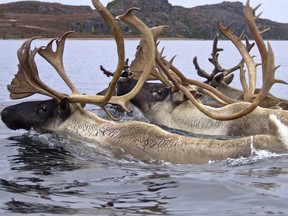“Part of the rationale for this ministry was to prioritize values like waters and biodiversity on par with resource extraction. That absolutely hasn’t happened yet” — Torrance Coste, Wilderness Committee

B.C.’s new land and water ministry is in disarray, according to several groups that hoped its creation would lead to better management of the province’s natural resources.
Even those who were pleased with the creation of the Ministry of Water, Land and Resource Stewardship two years ago believe it’s failing to deliver.
“Part of the rationale for this ministry was to prioritize values like waters and biodiversity on par with resource extraction,” said Torrance Coste, associate director with the Wilderness Committee. “That absolutely hasn’t happened yet.”

With Nathan Cullen as minister, the ministry got one of the NDP’s most “articulate and skilled” spokesman, said Costes. But while he was assuring the public that ecosystems and biodiversity were a priority, others in government were making promises to the forestry industry.
“This suggests a lack of coordination at best, and at worst, a sort of kid’s table dynamic,” said Costes.
Contacted this week, several B.C. groups that have frequent contact with the new ministry didn’t hesitate to point out problems.
The B.C. Wildlife Federation accused the ministry of “cannibalizing fish, wildlife and habitat funds.”
Executive director Jesse Zeman said when staff moved from the forestry ministry, they lost access to contingency funds to support fish and wildlife programs. As a result, disease management programs and winter wildlife inventories are at risk of being cancelled or underfunded, including the caribou recovery program.
He said some staff have been asked to turn off their cellphones to reduce costs, and travel funding has been cut. Staff morale is low, with some biologists on leave and others quitting.
“It’s a brain drain,” he said. “If your trained professional biologists are leaving government, how can you make science-based decisions?”

There’s also been trouble on the water file. On Vancouver Island, farmers have been battling the “water police” as the flawed rollout of the province’s groundwater licensing program was obvious during droughts and water shortages.
Those run-ins have led B.C. Green party candidate Arzeena Hamir to conclude the ministry has “failed” in its mandate on water.
“Farmers only like B.S. in their compost, not from the ministry. And we’re calling B.S.,” she said.
While a water bottling company was able to get a license to draw from the aquifer near Courtenay, farmers who want to use the water to grow crops and raise livestock were denied or faced fines, she said.
The province received about 10,000 applications for groundwater use, according to the Ministry of Water, Land and Resource Stewardship. It’s estimated that B.C. has about 20,000 groundwater users, meaning many users have still not applied eight years after the act came into force. Of the applications it received, ministry staff have completed 3,600, while 6,200 are pending.
“The ministry has refused to put the resources in to deal with the applications,” said Hamir. “It’s been a failure from the beginning and farmers can see this.”
If elected, the Green party has promised to create water stewardship councils in every region, to “empower communities to manage and conserve their water resources collaboratively.”
The Land Act has also presented major problems for the fledgling land and water ministry.
But since then, a lack of clarity plagues land-use decisions, including adventure tourism operators seeking renewal of their tenure to use Crown land.
In July, the Adventure Tourism Coalition was concerned tenures that had been reduced, denied or delayed to the point where they were uncertain if they could continue. It called on the government to “create clear and consistent policy across all natural resource sectors for involving them and the communities that rely on them in reconciliation decisions, and for fairly compensating tenure takings that occur as a result of those decisions.”
“It’s incredibly frustrating to be no further ahead today than four years ago,” said proponent Jayson Faulkner. “We’ve ticked every box, but we can’t get an answer to a simple question: How long will it take?”
Cheam First Nation project lead Ernie Victor blamed a “siloing effect” between different ministries, including land and water, forestry, tourism and agriculture.
“We’re just waiting for the decision, but now there’s a delay because of the election and who knows what will happen after that? Will there still be a Ministry of Water, Land and Resource Stewardship?”
In a statement, Cullen said the B.C. NDP will take action to conserve habitat and strengthen support for wildlife.
“John Rustad and the B.C. Conservatives have been clear that they think protecting lands, waters, forests and wildlife is nonsense,” he said. “They would reverse our progress and put critical wildlife at-risk.”
He pointed to several ministry successes, such as the new $1 billion dollar nature agreement, in which the federal government matched B.C.’s $500 million dollar investment to conserve 30 per cent of B.C. lands by 2030, increased penalties for illegal hunting and poaching, new “pull the plug” requirements to stop invasive mussels, marine conservation in the Great Bear Sea, and a $300 million First Nations-led conservation fund in partnership with the B.C. Parks Foundation.
B.C. Conservatives press secretary Shon Amayev said wildlife protection and land stewardship have suffered shortfalls under the NDP government. He said a Conservative government would increase funding for “conservation, science-based management, and enhancing land and water sustainability. We are committed to reversing the trend of neglect and ensuring that the ministry fulfils its mandate. ”
Executive director of the Outdoor Recreation Council of B.C. Louise Pedersen said the ministry is tasked with a very broad mandate, including not only land, water and ecosystem health, but also to build a new path forward with First Nations.
She complimented staff for their hard work, but said the ministry hasn’t been given the “necessary provincial funding to ensure they have any chance of being successful.”